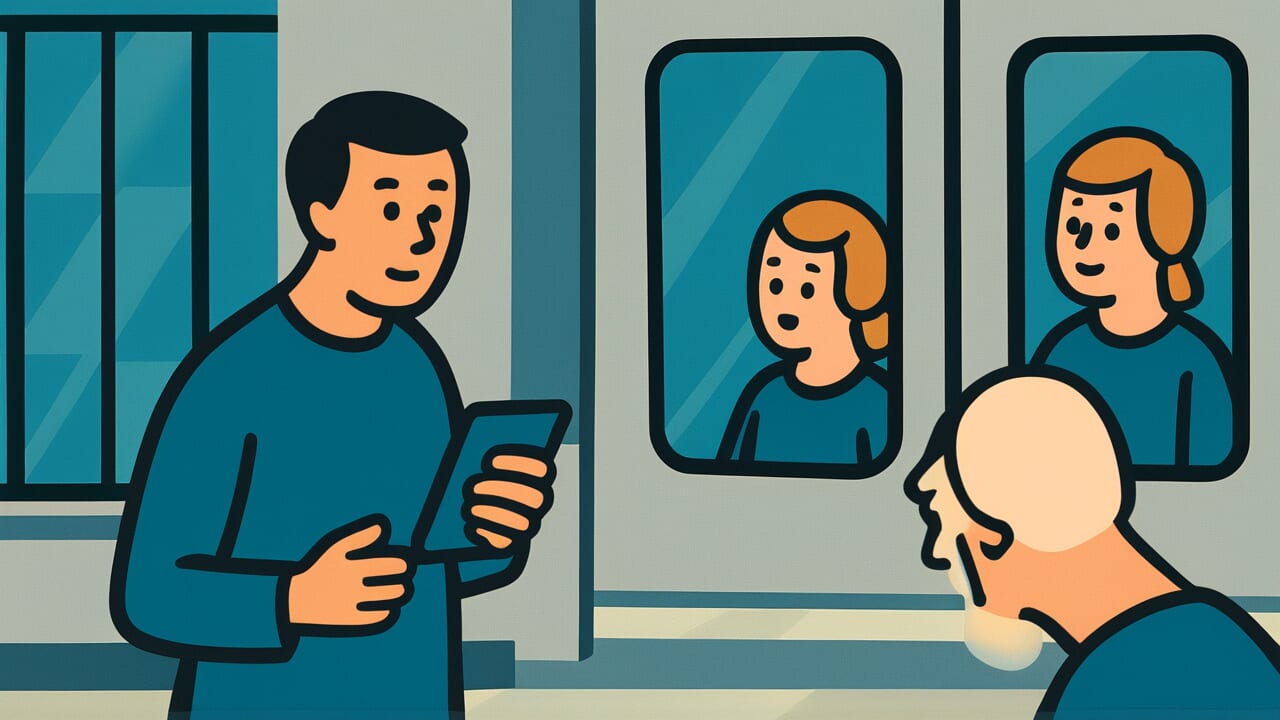How to Read “One who knows others is wise, one who knows oneself is enlightened”
Hito wo shiru mono wa chi nari, mizukara shiru mono wa mei nari
Meaning of “One who knows others is wise, one who knows oneself is enlightened”
This proverb means that understanding others shows wisdom, but understanding yourself is even more valuable.
It takes intelligence to read people’s personalities and thoughts. But recognizing your own strengths, weaknesses, emotions, and habits objectively is much harder and more important.
We often think we know ourselves best. But actually, we’re the hardest for ourselves to see clearly.
Our minds naturally justify our actions and interpret things in our favor. This proverb acknowledges how difficult self-awareness really is.
It praises those who can truly know themselves despite these challenges.
Today, people talk about self-analysis and self-understanding in many situations. This proverb captures the essence of why it matters.
Understanding others is valuable. But knowing yourself deeply leads to personal growth and a fulfilling life. This is a universal truth.
Origin and Etymology
This proverb comes from the ancient Chinese text “Laozi” (Tao Te Ching). The text was written during the Spring and Autumn period, centuries before Christ.
It’s considered a foundational scripture of Taoism.
The original Chinese reads “知人者智、自知者明.” The Japanese proverb is a direct reading of these characters.
Laozi’s philosophy values inward insight more than outward knowledge. Understanding others requires wisdom, but seeing yourself objectively is far more difficult.
Those who can do this are truly superior.
The two Chinese characters “智” (chi) and “明” (mei) have different meanings. “Chi” represents general intelligence, knowledge, and judgment.
“Mei” means clarity that sees through to the essence of things. It suggests unclouded, pure understanding.
Knowing others falls within the realm of knowledge. But knowing yourself represents a higher state where the mind’s eye has opened.
This teaching spread to Japan and became important in Zen practice and martial arts. It expresses a core principle of Eastern philosophy about the difficulty and importance of self-knowledge.
People have passed it down through generations.
Usage Examples
- He’s good at reading his subordinates’ psychology, but as the saying goes, “One who knows others is wise, one who knows oneself is enlightened”—he doesn’t seem aware of his own flaws
- What I learned in leadership training was the depth of the phrase “One who knows others is wise, one who knows oneself is enlightened”
Universal Wisdom
Humans have a strange characteristic. We can see others clearly, but we’re surprisingly blind to ourselves.
You can easily spot the problems in your friend’s relationship. Yet you don’t notice you’re repeating the same mistakes.
You can point out a coworker’s work habits. But your own behavior patterns remain in your blind spot.
Why is it so hard to see ourselves? Because we always view the world through our own eyes.
A camera can’t photograph itself. Similarly, consciousness can’t directly observe itself.
Our self-esteem and defense mechanisms make us look away from uncomfortable truths.
This proverb has survived thousands of years because it identifies this fundamental human weakness. Understanding others is wonderful wisdom.
But understanding yourself—the most familiar yet most complex being—is far more difficult and valuable.
People who know themselves no longer get upset by others’ opinions. They can calmly accept both their limits and their potential.
This isn’t just knowledge. It’s a state where the mind’s eye has opened—true “enlightenment.”
Our ancestors recognized that reaching this state is one of humanity’s highest achievements.
When AI Hears This
Understanding others is like photographing a landscape with a camera. The subject exists outside you, and you process information in one direction.
But understanding yourself is like a camera trying to photograph itself. This creates a troublesome problem in information theory.
Think about computers. Program A can easily analyze Program B. But when Program A tries to fully analyze itself, problems arise.
It must analyze the memory storing the analysis results. Then it must analyze the memory storing those results. This continues infinitely.
This is the trap of self-reference.
Mathematician Gödel proved that no system can completely prove things about itself. Self-understanding has fundamental limits in principle.
What’s more interesting is that self-observation requires double processing. You must observe your current state while simultaneously grasping the state of yourself observing.
For example, to notice you’re angry, you need to process both the emotion of anger and the calm self observing it.
This recursive calculation requires many times more processing power than simple external observation.
Laozi gave the highest praise to “one who knows oneself is enlightened.” Perhaps he intuitively understood this explosive increase in computational complexity.
Self-understanding is fundamentally more difficult than understanding others, according to information theory.
Lessons for Today
Modern society overflows with information about others through social media and news. It’s easy to judge someone’s success or failure and offer advice.
But this proverb asks us: Do you truly understand yourself?
Knowing yourself isn’t just listing your strengths and weaknesses. It’s understanding why you feel angry in certain situations.
When do you feel anxious? What brings you genuine joy? It means observing these emotional patterns without making excuses.
This self-understanding dramatically changes your quality of life. When you know your limits, you don’t push too hard.
When you know your strengths, you can move forward with confidence. When you understand your emotional patterns, you avoid impulsive decisions.
You can start today. Take time at day’s end to reflect on your actions and emotions.
Don’t criticize—just observe. Understanding others is important wisdom. But having the clarity to deeply know yourself as a person matters more.
This will make your life richer and freer.



Comments